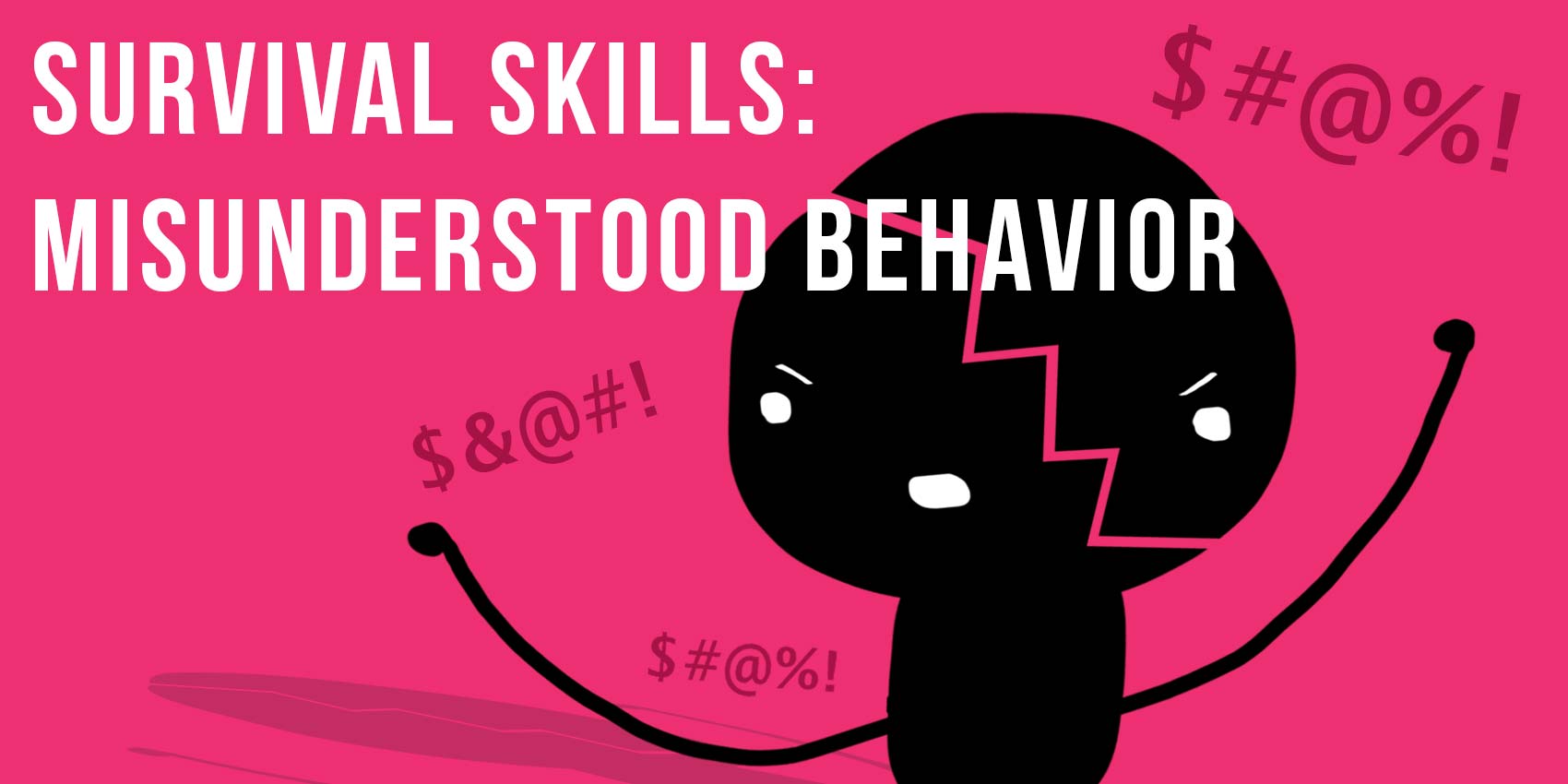01 Mar Survival skills: misunderstood behavior

Victims of childhood trauma like Oprah have little insight into what has happened and why. They are unable to connect what they feel and what they do to what happened to them. Instead, they act out their internal conflicts and usually get into trouble for it, perpetuating the problem further (like when Oprah continued to steal at camp). When well-meaning people understand this cycle, they can help victims turn into survivors.
You have read about childhood trauma with Oprah as the example.
What does Oprah’s behavior at camp tell us about how she feels about who she is? Does it provide clues as to how she may have been treated as a child?
Making the connection between the two is tricky. As bystanders, we need to make the connection between the childhood abuse and the present behavior. Then we need to respond to survivors of childhood abuse in a new way rather than in a way that just continues the cycle.
Unfortunately, repeated trauma changed Oprah’s brain chemistry. She is in a constant state of threat and stress. This feels out of control to her. As such, she acts out as a way to gain control. She pushes counselors away because it is safer for her not to connect with others. The less she trusts or relies on others, the more in control she is. Because control is important to victims of abuse, change is difficult. New rules, new roles, new routines, new people feel threatening and can throw someone like Oprah into a rage. When Oprah hit someone who bumped into her by accident, Oprah was seen as being “bad.” People like Oprah are often labeled as rebellious, a bully, and antisocial.
At camp Oprah may think, Yeah, here it comes again, another person screaming at me. Whatever. Like I haven’t heard it a million times. I know, I know, I’m awful. Get lost. I don’t need you. Yeah, I’ll go stand in the corner, ‘cause that’s really helpful.
Punishment doesn’t help Oprah. It makes it worse. It shows her that no matter how she acts, people will always hurt her. Punishment does nothing to heal her pain. And it doesn’t show her how to build a healthy relationship. Now you may be thinking, Duh, all she has to do is to be NICE to someone. But, in Oprah’s world, no one was ever nice to her. In her world, nice might have gotten her unnoticed so she wasn’t beaten. It didn’t bring her a close relationship.
Oprah is simply trying to survive (remember, our brains’ number one priority is survival)! Does Oprah know any other way of behaving that has worked for her in the past? Heck, no. Oprah has learned that to survive, she has to use skills like:
Using foul language
Ignoring threats
Acting on threats
Stealing
Lying
Sometimes being violent
Once you understand the behavior for what it is (survival) you stop punishing it and start new ways of healing and building connections with kids like Oprah.
You have learned that how we are raised shapes who we are. If raised in abuse, we can become defensive and possibly abusive ourselves. (Remember how many victims of abuse end up in prison because they abused others?) But, by understanding that poor behavior is often really survival skills, we can connect with those who are hurting from repeated child abuse. When we show compassion for those who are hurting and try to help them heal, or direct them to a qualified professional, we are part of the solution, no longer part of the problem.
NOTE: Please speak with a qualified professional if you know someone who has been traumatized and you’d like to help. Working with people who have been traumatized is very tricky and takes a vast amount of patience and understanding of what has happened to a person who has been traumatized.




Post Question:
Do you know of anyone like Oprah?
Answer the post question here
What's being said